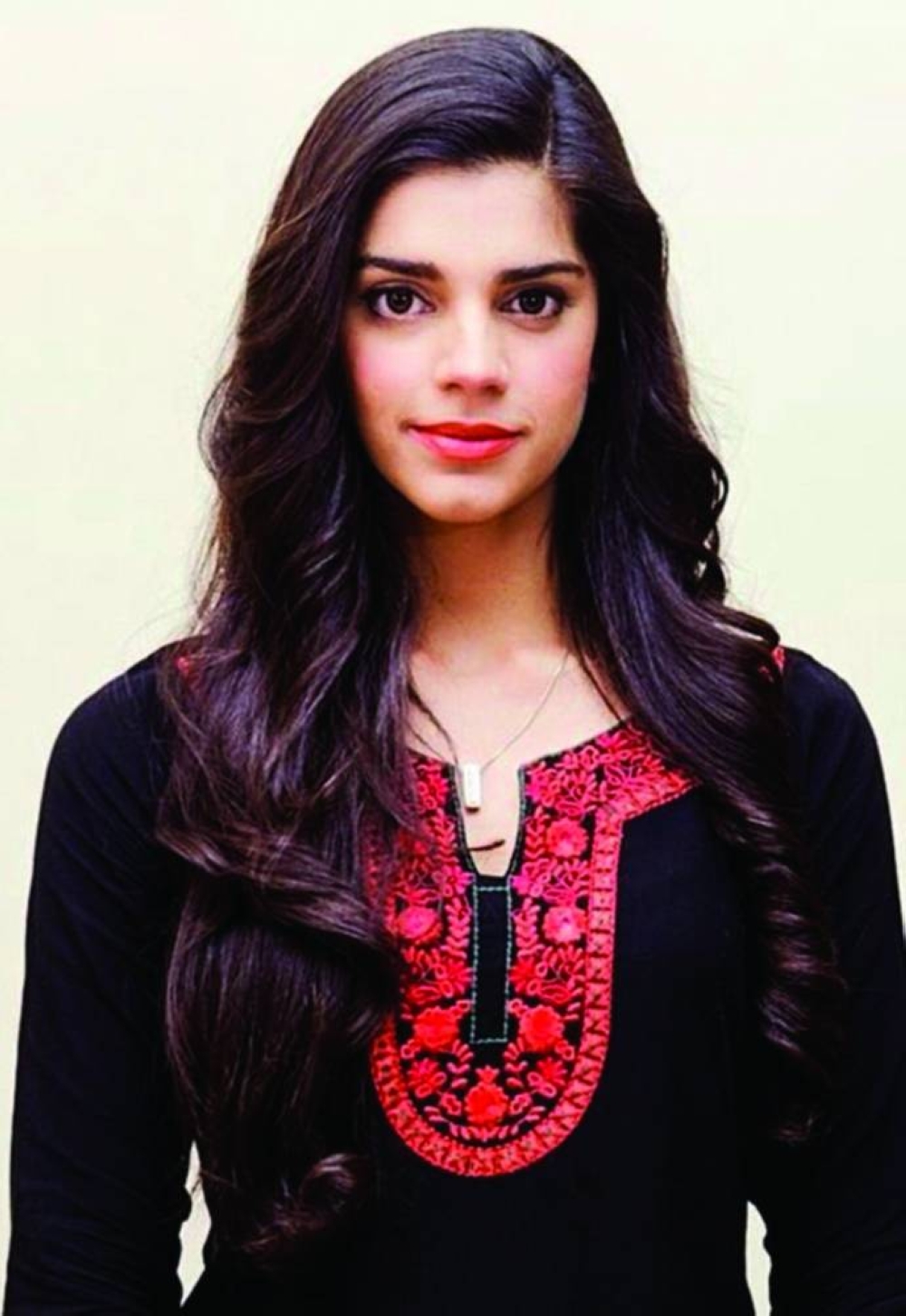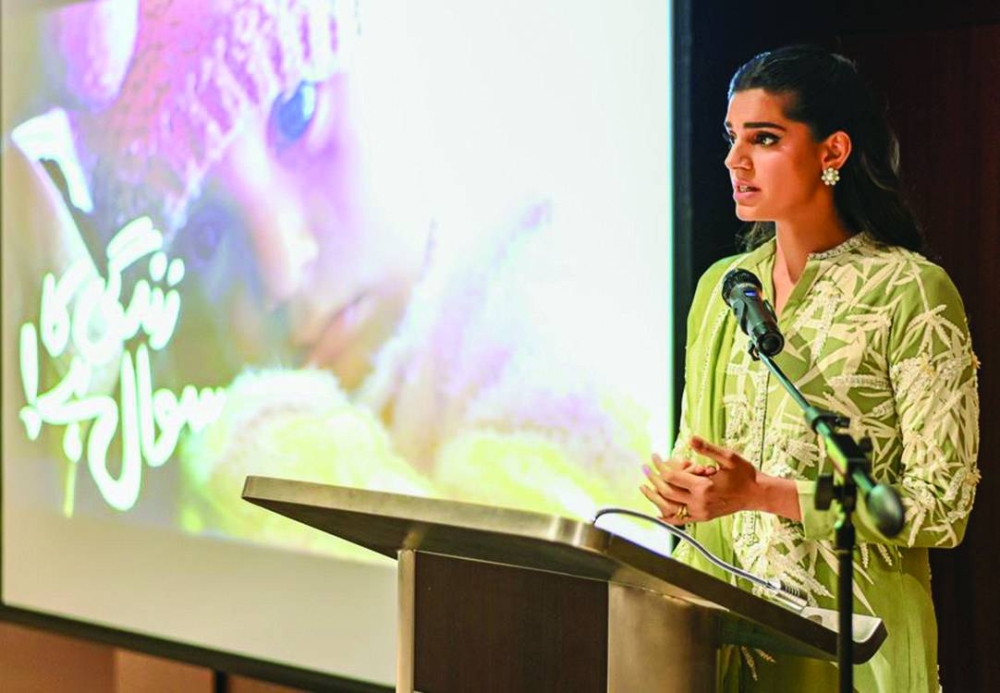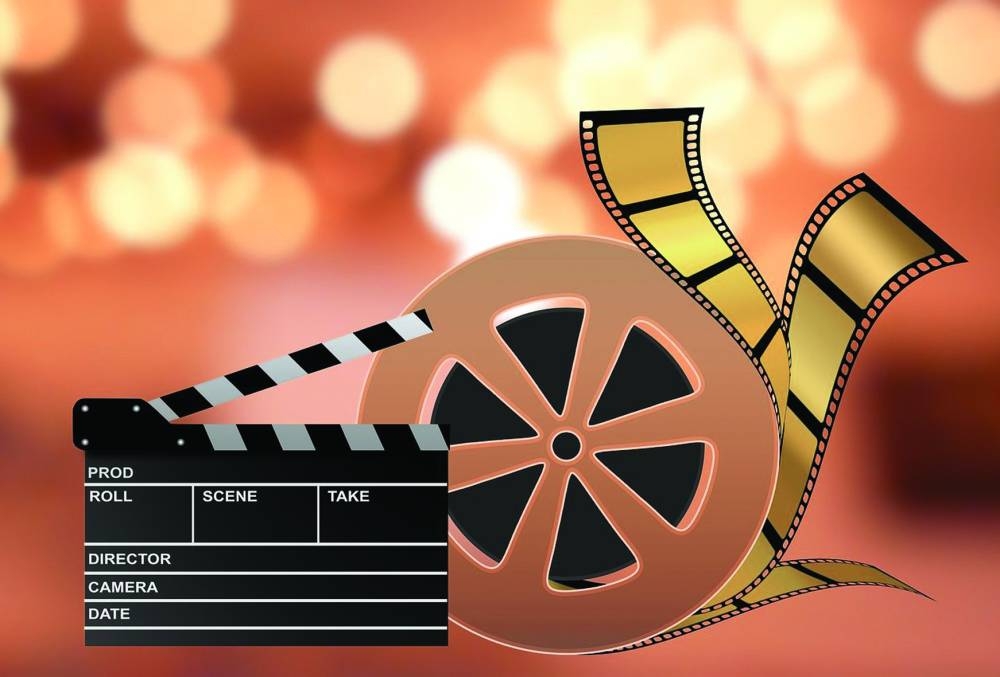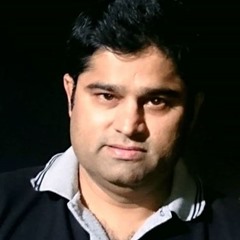In the pantheon of Pakistani entertainment, few names resonate as profoundly as Sanam Saeed’s. An actress of rare versatility and depth, she has carved a niche for herself in an industry that is both vibrant and competitive.
Perhaps best known for her role in the critically acclaimed drama 'Zindagi Gulzar Hai' which made waves both in her native Pakistan and across the border in India, Sanam has showcased an exceptional ability to bring complex characters to life, earning her a dedicated fan base and critical acclaim both domestically and internationally.
Beyond reel life, she is a real life hero, too, lending her time and energy for humanitarian causes. Sanam was in town over the weekend for something similar – raising awareness about cancer – at the annual Ramadan event organised by Friends of Shaukat Khanum Memorial Trust (Qatar) in Doha.
In an exclusive interview with Gulf Times, Sanam spoke at length about the cause she so fervently espouses, her love of Qatar, and, last but not least, her dynamic acting career across television, cinema, theatre, music and now, web series.
Born on February 2, 1985, in London, UK, and raised in Karachi, Pakistan, her journey from a budding theatre artist to a leading television and film actress mirrors the evolving landscape of Pakistani entertainment.
Excerpts from the interview:
Q: Before we venture into your career as an artist, please tell us about how you came to espouse a real life role such as being an ambassador for Shaukat Khanum Memorial Cancer Hospital (SKMCH)?
I knew about SKMCH and the healthcare they were providing to cancer patients and how it was a huge support system for people in need. Personally, I experienced it closer home with my mother diagnosed with breast cancer, and so I could resonate with the cause and was passionate about trying to spread awareness on prevention through early detection.
Television and media are powerful mediums. I was able to learn quickly about the influence and impact our roles on television have on the public, especially young women, not many of whom are exposed to avenues of information from where they could learn about their fundamental rights. In fact, I made it my mission to choose roles that would have these empowering messages for women. We made dramas on child abuse, mental health issues, and the like. And so that is how my “social work” is done through my work. Secondly, anything I believe in strongly, I’m happy to contribute as ambassador.
There’s Shaukat Khanum, The Citizens Foundation, Kiran Foundation, Hunar Foundation and the like that each cater to different needs whether it’s cancer treatment, free education, vocational training centres or improving the community’s overall well-being. These organisations just need that extra push and support to spread awareness and raise funds. I’m grateful to have the honour of being their voice where needed.
I think there’s more awareness and recognition now, which is all very important given that Pakistan is a country with one of the highest breast cancer rates in the world. With all the work it does, SKMCH has enabled the message to reach across homes in Pakistan.
How is your Qatar experience? What is it that you like most about the country?
My Qatar experience is serene. It’s a beautiful country. I have a very close friend here so it feels like coming home. I was busy at the time of the FIFA World Cup, but I heard about the enriching experience it was. It was lovely see the whole world come to Qatar and respect the local culture and appreciate the hospitality. So there were big takeaways from their trip to Qatar. It is always a pleasure to visit Qatar.
From your initial start in TV with a supporting role in 'Daam' to playing complex characters in serials like 'Zindagi Gulzar Hai' and 'Diyar-e-Dil', how do you think your acting approach has evolved over the years?
It evolves with every project because every project brings a new director, which brings a new approach, which brings a new aesthetic, a new style. So I’m constantly learning and evolving through my directors, scripts and definitely, through the energy that the cast brings. And then, difficult as it is to watch one’s own past work, I’ve been doing that to learn (from the experience) and see what works and what doesn’t. I think it was the greatest way I could teach myself and evolve as an actor.
Your portrayal of Kashaf Murtaza in 'Zindagi Gulzar Hai' received widespread acclaim and numerous awards. What do you think made your character and this serial resonate so strongly with audiences in both Pakistan and India?
Kashaf Murtaza’s character was the story of any young girl in the subcontinent who experiences certain biases, whose path is riddled with obstacles, particularly father issues, financial issues, low self-esteem issues. And finally finding a suitable life partner. This is something many young girls experience, which is why I think people felt very close to the character as they could relate to it.
You've successfully transitioned from TV to film, receiving critical acclaim for your roles in movies like 'Cake'. How do you prepare for these different mediums?
Television is a very ‘close-ups’ medium; there are lots of close-ups and so your expressions come into play with tighter lens so that the people size up the expressions, emotions and the feelings actors are going through. In contrast, in cinema, you have wider lens, wider shots and open space. And because you have a huge screen, you can show the environment in which the characters perform.
Technically, on the big screen you have to be aware of your movements and body language, given that nothing is hidden in terms of detail from the viewer. On television, you might still get away with things, but not on the big screen, where the tiniest flaw can stand out like a sore thumb. The theatre background helps a lot with the latter as you learn movements. In terms of preparations, a lot depends on the director: how much they want you to act, emote: do they want it loud, understated, very suttle, or very deadpan.
You had four film releases in 2016, which in itself is a statement. These must have been in the works, but how did you juggle different roles in that length of time?
Indie films – or art films as they are sometimes referred to – were shot over several years, but they all happened to come out at the same time, which is interesting. This underpins my love for doing diverse roles.
Finally, what is your take on the current fare on the small screen in Pakistan? Are they substantive in terms of content or suffer from formulaic inertia?
You can’t have great content all the time; at any given time, there will be one diamond in the rough, may be two that stand out in the crowd and make an impact. But you have to keep going at it. There’s a lot of talent in terms of actors, directors, writers. The channels are there to provide the platform – so we’ve got a lot of potential. The fact is that, in Pakistan, what has really helped the economy in our field is television, sustaining the media industry.
There is speculation that you’re doing web series and something big is coming up. What can you tell us about that?
I have been doing web series more recently only out of my love for diversity; hopefully, the projects will come up before the end of 2024 on several different online streaming platforms.
Qatar
Close encounter with the versatile Sanam Saeed
Pakistan’s leading actress on her career choices, humanitarian causes, love of Qatar and what makes her tick

Goal-Oriented: "I made it my mission to choose roles that would have these empowering messages for women," says Sanam Saeed

For a cause: Sanam Saeed addressing the annual Friends of Shaukat Khanum Memorial Trust (Doha) cancer awareness event at a local hotel.


